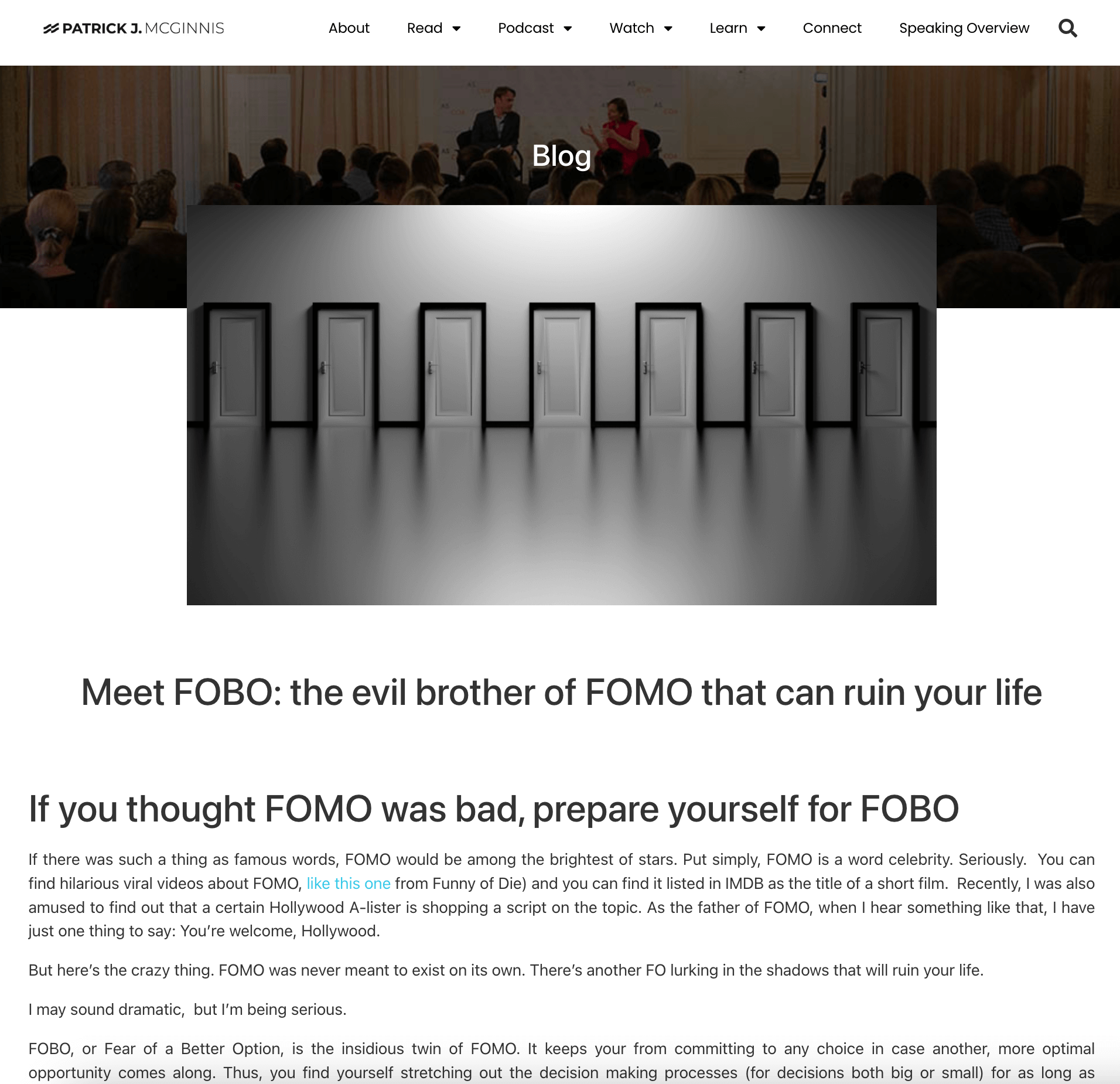FOBO
FOBO has 2 meanings
Fear of being on
Example
I have a piece of masking tape I place over my webcam each morning, because my FOBO's so strong

Related Slang
| FOMO | Fear of missing out |
| Zoom town | A town that many remote workers are moving to |
| Zumping | Dumping someone over Zoom |
| Zooze | Drinking with friends over Zoom |
| rona | Coronavirus |
| quar | Quarantine |
| WFH | Work from home |
| Social distancing | Isolating from other people |
| Coffice | Coffee shop office |
Categories
Fear of better options
Indecisive people may say they suffer from FOBO, which stands for "fear of better options." These people fear making the "incorrect" choice so much that they overanalyze their every decision.
Origin of FOBO
Writer, speaker, and venture capitalist Patrick J. McGinnis coined both FOBO and its more-famous cousin, FOMO. Notably, McGinnis discussed FOBO in a February 2018 post to his blog.
In that post, McGinnis explained that FOBO keeps people "from committing to any choice in case another, more optimal opportunity comes along." This analysis paralysis can lead to people missing out on opportunities and, more importantly, frustrating their friends, family, and co-workers.
Example
I've got severe FOBO when it comes to choosing where to go on vacation
What a thing to stress yourself out about

Related Slang
| FOMO | Fear of missing out |
| FOMOngering | Purposefully creating feelings of FOMO |
| FOGO | Fear of going outside |
| FOBI | Fear of being included |
| JOMO | Joy of missing out |
 How well do you know your texting slang?
How well do you know your texting slang?
FOBO stands for "fear of being on." This acronym was coined during the COVID-19 pandemic, when many new WFHers first encountered the anxiety associated with needing to remember to turn off their webcams and mute their microphones, rather than unintentionally share something embarrassing over Zoom or another online "productivity" service.
The term FOBO first appeared in an October 2020 Slate article titled The FOBO Is Real, in which author Heather Schwedel explained FOBO's meaning. Seven months into the United States' roller coaster pandemic experience, Schwedel assumed most remote workers were feeling at least some amount of FOBO, until The New Yorker reporter Jeffrey Toobin notably proved her wrong.